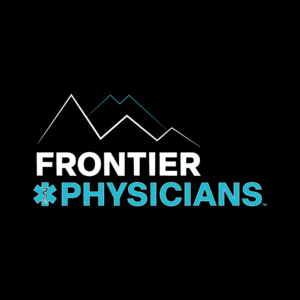
Policy Corner—May 2017
The 2017 state legislative session wrapped up last week with rural Colorado winning big in the final days of state lawmaking. The state budget crisis and federal uncertainty made for a rocky start in January, a sentiment that continued through the six month session. The General Assembly once again had split party control, with Republicans controlling the Senate and Democrats controlling the House. With these factors in mind, compromise was required for passage of any substantial legislation. The General Assembly also had many new members following the 2016 election, which presented a learning curve for new legislators to understand the policy making process and the state of Colorado as a whole.
In the first months of session, many legislators introduced ‘message bills,’ or bills not necessarily introduced with much hope for passage but rather introduced to convey a partisan principle. Republicans introduced many measures to repeal the health benefit exchange, curb government spending, loosen gun restrictions, and tighten regulations around abortion. Democrats introduced similar ill-fated partisan measures, such as banning gay-conversion therapy, making it easier to change a person’s gender on a birth certificate and reinstating mandated employer leave for parents seeking time off.
As the session continued and the budget crisis loomed, many pieces of legislation were introduced to remedy the perennial issue of the Hospital Provider Fee. Ultimately, SB17-267 Sustainability of Rural Colorado was the compromise bill that passed through the General Assembly in the final hours of session. The huge piece of legislation includes many provisions intended to provide rural Colorado with some fiscal and regulatory relief. The conversion of the Hospital Provider Fee into an Enterprise Fund is most notable for rural health professionals and advocates, as the accounting change avoided $528 million in funding cuts for rural and safety net hospitals. The bill also provides:
- $1.88 billion over 20 years for rural transportation needs
- $200 million reduction in the Taxpayer’s Bill of Rights spending cap (limiting government spending even more than where voters set it with Referendum C in 2005)
- $20 million in tax credits in 2019-20 for Colorado businesses to offset the loathsome business personal property tax
- $40 million in increased marijuana taxes by raising the special sales tax to 15 percent in 2017-18
- $30 million for rural schools in 2017-18
- $20 million for all K-12 schools in 2018-19 and 2019-20
Additionally, it requires every state agency to present a budget next year that proposes an optional 2 percent reduction in funding.
Through all the policy challenges and celebrations of the 2017 session, the CRHC policy program was supported by the Policy & Legislative Committee (PLC). The PLC is an advisory board that meets bi-weekly via conference call during session to discuss, track and ultimately advise CRHC when taking a position on any piece of legislation. The PLC votes to either Support, Oppose or Monitor a bill, the decisions are considered by the board, and the CRHC policy program works to advocate for those positions.
The PLC provides first-hand context about how introduced legislation may impact healthcare in rural Colorado and guides the lobbying and advocacy efforts at CRHC. CRHC is one of the few rural voices at the Capitol, and the only voice dedicated solely to representing the needs of rural healthcare in the state. In recent years, CRHC has worked hard to grow and diversify the PLC membership. Our group now includes 25 voting members, including CEOs, clinic managers, quality specialists, primary care providers, a dentist, and even a behavioral health professional. The input from the PLC is unique, genuine, informed, and ultimately has made CRHC a reliable, nonpartisan resource for legislators. I cannot thank them enough for their commitment to the PLC and CRHC.
The 2017 PLC members include:
- Derek Biddle , IT Director, Family Health West
- Susan Blake, Registered Medical Assistant, Spanish Peaks Regional Health
- Brandon Chambers, EMS Coordinator/EMS Service Owner, Southern CO RETAC
- Kami Cohoon, Clinic Manager, Southeast Colorado Medical Clinic
- Tammy Dunker, Clinic Manager, Rangely Family Medicine
- Marty Gaither, Director of Ancillary Services, Kit Karson County Health Service District, Parke Wellness Center
- Kelly Gallegos, Administrator, Conejos County Hospital, SLV Health
- John Gardner, CEO, Telluride Regional Medical Center
- Michelle Gay, Clinic Manager, Conejos County Hospital, SLV Health
- Wendi Gillard, Quality/Risk Manager, Rangely District Hospital
- John Glick, Provider, Yuma District Hospital
- Mike Moll, Provider, Spanish Peaks Regional Health
- Carrol Morrow, Provider, Walsh Dental Clinic
- Max Morton, Director of Rehabilitation, Haxtun Hospital District
- Cindy Mulder, Quality, Yuma District Hospital
- Shauna Richardson, Medical Staff Office Coordinator/Chief Compliance Officer, Kit Karson County Health Service District
- Sally, Ryman, MSW, LSW, Program Director, Emergency Mental Health Clinician, Grand County Rural Health Network
- Bev, Sandberg RN, Director of Quality and Regulatory Affairs, Yuma District Hospital
- Larry Schrage, CEO , Haxtun Hospital District
- Marsha Sensat, Chief Nursing Officer, Pikes Peak Regional Hospital
- DeeAnn Sierra, Clinic Practice Manager, Rio Grande Hospital & Clinics
- Pam Stamm, Clinic Manager, Basin Clinic
- Kevin Stansbury, CEO, Lincoln Community Hospital
- Sharma Vaughn, Chief Nursing Officer, Rangely District Hospital
- Lisa Zwerdlinger, Provider, Rocky Mountain Family Practice
CRHC also has representation from two partner organizations, the Colorado Hospital Association (CHA) and the Center for Health Progress. These non-voting members of the PLC provide additional context and input to policy discussions. These members include:
- Amber Burkhart, Policy Analyst, Colorado Hospital Association
- Aditi Ramaswami, Public Policy Specialist, Center for Health Progress
We are always looking to increase and amplify the voice of rural healthcare in Colorado. If you are interested in joining the PLC in 2018, please contact me at ke@coruralhealth.org.


